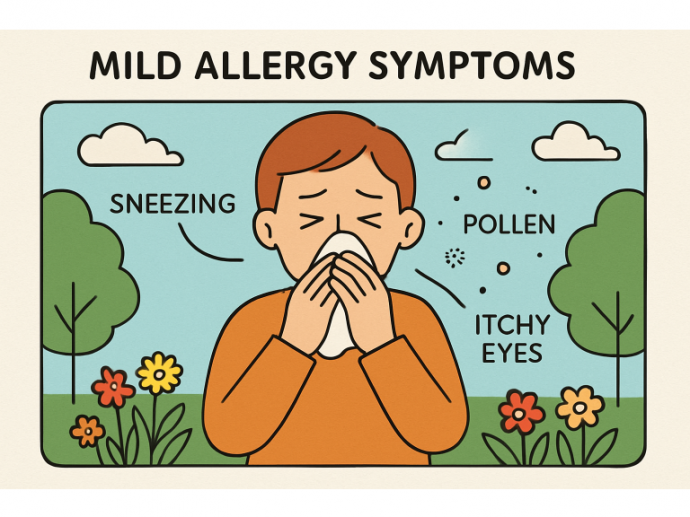Dietary Approaches
Your nutritional choices play a larger role in allergy defense than most people realize. The right foods can help calm inflammation, modulate immune responses, and build resilience against seasonal or environmental triggers. Begin by focusing on these core dietary strategies:
- Anti-Inflammatory Foods: Certain foods, especially those rich in omega-3 fatty acids, such as salmon, sardines, walnuts, flaxseeds, and chia seeds, help regulate inflammation throughout the body. Leafy greens, berries, turmeric, and olive oil are also beneficial. Try to incorporate these foods regularly, as chronic inflammation can worsen allergic reactions and leave you feeling more fatigued.
- Quercetin-Rich Foods: Quercetin is a plant-based compound with natural antihistamine properties. Found abundantly in onions, apples, berries, grapes, and broccoli, quercetin works by inhibiting the release of histamine, the molecule responsible for classic allergy symptoms. Including more of these foods in your diet can help you both prevent and curb symptoms during allergy season.
- Probiotics: An often-overlooked factor is gut health. Fermented foods such as yogurt, kefir, sauerkraut, kimchi, and miso introduce beneficial bacteria to your digestive system. A healthy gut supports balanced immune system function, potentially reducing general inflammation and making it less likely for your immune system to overreact to allergens.
Lifestyle Modifications
Alongside what you eat, how you live, and how you manage your surroundings can dramatically impact your exposure to allergens and the persistence of symptoms. Consider implementing the following lifestyle strategies to reduce your allergy burden further:
- Monitor Pollen Counts: Track daily pollen forecasts through weather apps or websites, especially if you are prone to hay fever or outdoor allergies. Plan errands or exercise for times when pollen levels are relatively low, usually late afternoon or after rain, and stay indoors during high-pollen mornings or windy days.
- Keep Windows Closed: Resist the urge to let in fresh air on high pollen days. Instead, rely on air conditioning in your home and car to filter the incoming air and keep pollen and other allergens from accumulating indoors.
- Shower After Outdoor Activities: Pollens and other allergens easily cling to your hair, skin, and even clothing. Make it a habit to shower and change clothes promptly when you come inside, especially during high allergy seasons, to avoid spreading pollen throughout your home and bedding.
- Use HEPA Filters: Investing in high-efficiency particulate air (HEPA) filters for your HVAC system, vacuum, or standalone air purifiers can effectively capture even microscopic particles from indoor air, making it easier to breathe safely at home. Regularly change and clean these filters for best results.















